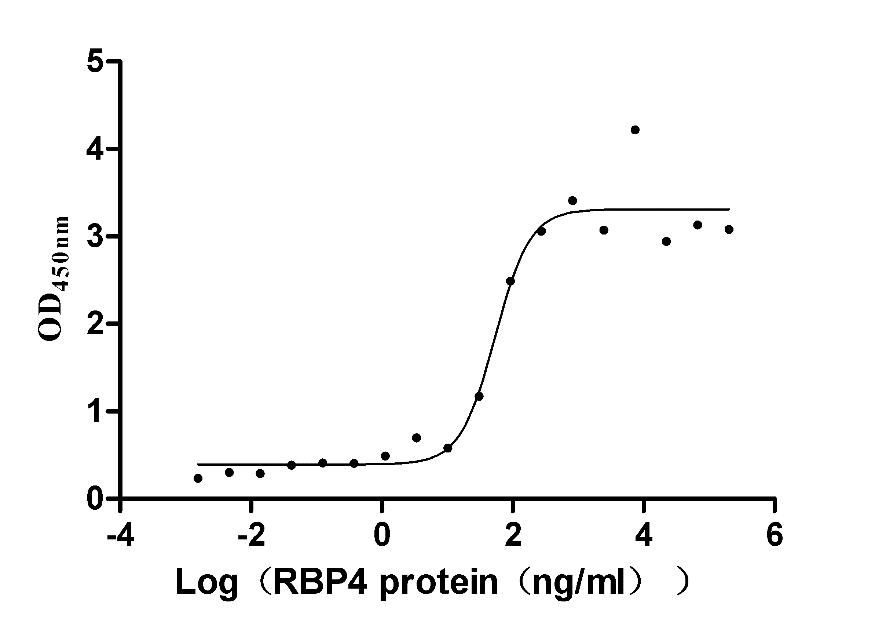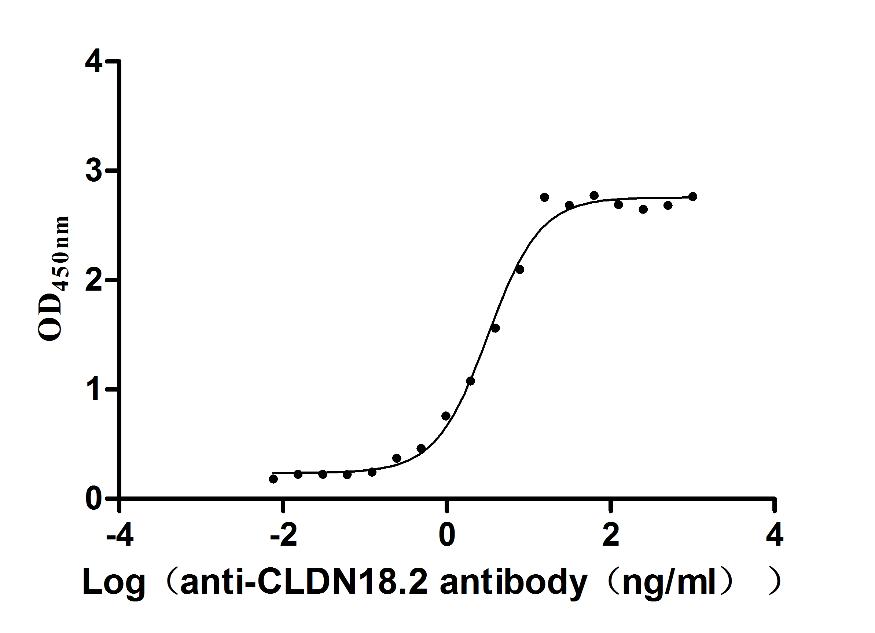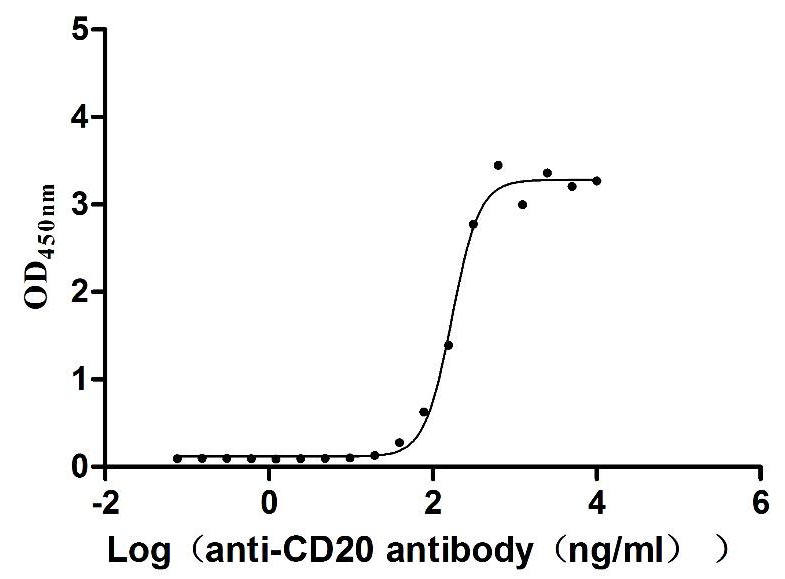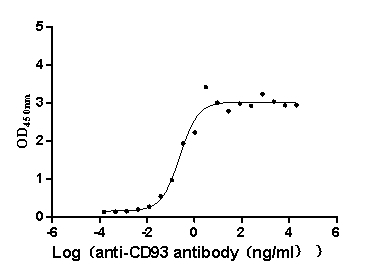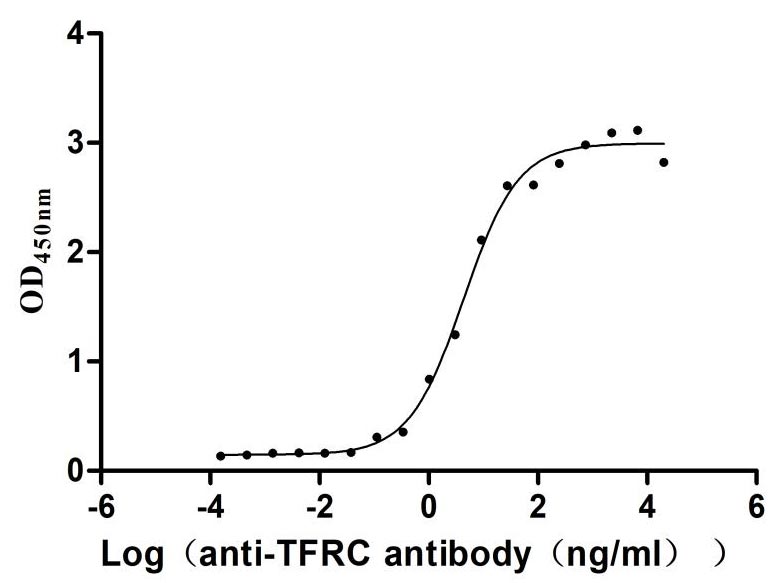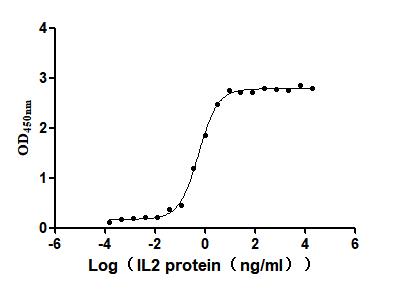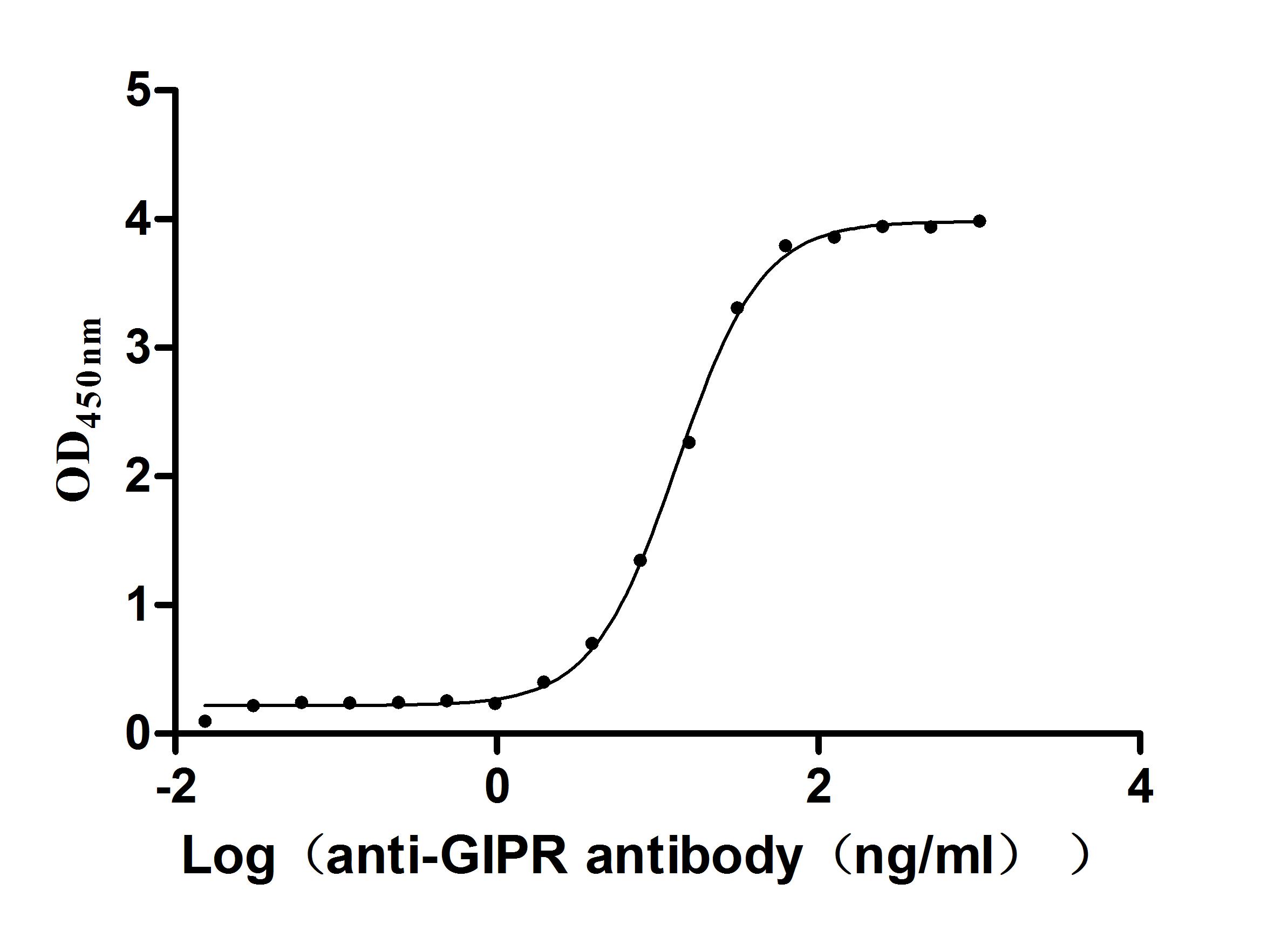Recombinant Human FXYD domain-containing ion transport regulator 3 (FXYD3),Partial
In Stock-
货号:CSB-EP622789HU
-
规格:¥1836
-
图片:
-
其他:
产品详情
-
纯度:Greater than 85% as determined by SDS-PAGE.
-
基因名:FXYD3
-
Uniprot No.:
-
别名:Chloride conductance inducer protein Mat 8; Chloride conductance inducer protein Mat-8; FXYD domain containing ion transport regulator 3; FXYD domain-containing ion transport regulator 3; Fxyd3; FXYD3_HUMAN; Mammary tumor 8 kDa protein; MAT-8; MAT8; MGC111076; Phospholemman like; Phospholemman-like; PLML
-
种属:Homo sapiens (Human)
-
蛋白长度:Partial
-
来源:E.coli
-
分子量:20.5 kDa
-
表达区域:21-38aa
-
氨基酸序列NDLEDKNSPFYYDWHSLQ
Note: The complete sequence including tag sequence, target protein sequence and linker sequence could be provided upon request. -
蛋白标签:N-terminal 6xHis-SUMO-tagged
-
产品提供形式:Liquid or Lyophilized powder
Note: We will preferentially ship the format that we have in stock, however, if you have any special requirement for the format, please remark your requirement when placing the order, we will prepare according to your demand. -
缓冲液:Tris-based buffer,50% glycerol
-
储存条件:Store at -20°C/-80°C upon receipt, aliquoting is necessary for mutiple use. Avoid repeated freeze-thaw cycles.
-
保质期:The shelf life is related to many factors, storage state, buffer ingredients, storage temperature and the stability of the protein itself.
Generally, the shelf life of liquid form is 6 months at -20°C/-80°C. The shelf life of lyophilized form is 12 months at -20°C/-80°C. -
货期:3-7 business days
-
注意事项:Repeated freezing and thawing is not recommended. Store working aliquots at 4°C for up to one week.
-
Datasheet & COA:Please contact us to get it.
相关产品
靶点详情
-
功能:Associates with and regulates the activity of the sodium/potassium-transporting ATPase (NKA) which transports Na(+) out of the cell and K(+) into the cell. Reduces glutathionylation of the NKA beta-1 subunit ATP1B1, thus reversing glutathionylation-mediated inhibition of ATP1B1. Induces a hyperpolarization-activated chloride current when expressed in Xenopus oocytes.; Decreases the apparent K+ and Na+ affinity of the sodium/potassium-transporting ATPase over a large range of membrane potentials.; Decreases the apparent K+ affinity of the sodium/...显示更多
-
基因功能参考文献:
- Suppression of FXYD3 in MCF-7. PMID: 26740212
- All three markers correlated significantly with regional lymph node metastasis: FXYD3 (p = 0.0110), S100A11 (p = 0.0071), and GSTM3 (p = 0.0173) in colon cancer lymphatic metastasis. PMID: 22430872
- ExoS facilitates P. aeruginosa penetration through the intestinal epithelial barrier by binding to FXYD3 and thereby impairing the defense function of tight junctions against bacterial penetration. PMID: 20805335
- Up-regulated expression of FXYD-3 protein may be involved in tumourgenesis and invasion of gastric adenocarcinoma. PMID: 20364041
- FXYD3 expression is related to several biological variables including ras, p53, legumain and PCNA, and may be involved in the development of the relatively early stages of colorectal cancers PMID: 19955746
- Upregulation of FXYD3 is associated with glioma. PMID: 20112499
- inactivation of FXYD3 through a gene mutation or unknown mechanism could be one cause of the atypical shapes of cancer cells and play a potential role in the progression of lung cancer. PMID: 19893046
- Results indicate that the human MAT-8 gene contains the potential to serve as a prostate cancer expression marker and that MAT-8 plays an important role in cellular growth of prostate carcinomas. PMID: 14654946
- overexpression of FXYD3 in pancreatic cancer may contribute to the proliferative activity of this malignancy PMID: 16003754
- analysis of two human FXYD3 isoforms that are differentially expressed in differentiated and non-differentiated cells with different functional properties PMID: 17077088
- FXYD3 interacts with Na(+)-K(+)-Exchanging ATPase in colorectal neoplasms. PMID: 17409496
- structures of the FXYD proteins (with emphasis on 1-4), as well as their dynamics and their associations with the lipid PMID: 18000745
- FXYD3 silencing prevents proper regulation of Na,K-ATPase, which leads to perturbation of cellular Na+ and K+ homeostasis and changes in the expression of Na,K-ATPase isozymes, whose functional properties are incompatible with cell differentiation. PMID: 19109419
- FXYD3a protein is highly expressed in breast cancers, and responsible for cancer cell proliferation. PMID: 19571376
收起更多
-
亚细胞定位:Cell membrane; Single-pass type I membrane protein.
-
蛋白家族:FXYD family
-
组织特异性:Isoform 1: Expressed mainly in differentiated cells (at protein level). Isoform 2: Expressed mainly in undifferentiated cells (at protein level).
-
数据库链接:
HGNC: 4027
OMIM: 604996
KEGG: hsa:5349
STRING: 9606.ENSP00000389770
UniGene: Hs.301350




